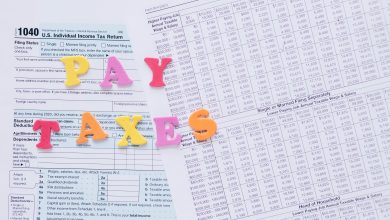How Many Checking Accounts Should I Have?

How Many Checking Accounts Should I Have?
When it comes to managing money, most people start with a single checking account. It’s simple, convenient, and gets the job done. But as your financial life gets more complex, you might start wondering: Should I have more than one checking account? The short answer is—it depends on your lifestyle, goals, and how you like to manage your money.
Let’s break it down.
Why People Stick to One Checking Account
One checking account is easy to manage. You know where your money is, where it’s going, and you don’t have to juggle logins or worry about transferring funds between multiple accounts. If you’re living paycheck to paycheck, just getting started with budgeting, or you like keeping things simple, one checking account might be all you need.
Reasons to Consider Multiple Checking Accounts
There are some good reasons to open more than one checking account:
1. Budgeting Made Easy
Some people use multiple accounts to divide up their spending. For example, one account might be for fixed bills (rent, utilities, subscriptions), while another is for daily expenses like groceries, gas, and eating out. This separation helps you stay on track and avoid accidentally dipping into money meant for bills.
2. Shared vs. Personal Spending
If you’re in a relationship or managing shared expenses with a roommate, having a joint checking account for shared costs—while keeping a personal account for your own spending—can be a smart move. It helps maintain transparency and independence at the same time.
3. Business or Side Hustle Income
If you run a small business or have a side hustle, a separate checking account for those transactions can make tax time a whole lot easier. It also helps you track how much you’re really earning and spending on that gig.
4. Emergency Buffer or Sinking Funds
Some people like to keep a small checking account just for emergency cash or specific savings goals they want easy access to—like vacation money or car maintenance. It’s not the same as a savings account, but it keeps certain funds separate from everyday spending.
Things to Consider Before Opening More Accounts
Having multiple checking accounts isn’t for everyone. Before you start opening new accounts, ask yourself:
-
Are there monthly fees? Make sure you’re not paying extra just to have more accounts.
-
Can I keep track of them easily? If logging in and out of multiple apps sounds overwhelming, it might be more trouble than it’s worth.
-
Do I really need a new account, or can I use budgeting tools or alerts to get the same result?
So, How Many Should You Have?
For most people, one or two checking accounts is enough. But if you love structure, budgeting, and planning—or have different income streams and financial goals—three or even four accounts might make sense. The key is to find a system that works for you and supports your financial habits, not complicates them.



